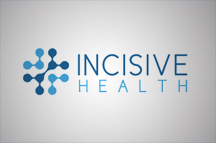100 days to the election. See how health made the headlines on Twitter with our weekly round-up.
On home soil:
-
 Great news for public health. Are we nearing an end to the packet racket? (via @CR_UK):
Great news for public health. Are we nearing an end to the packet racket? (via @CR_UK): - THAT interview. Simon Stevens interviewed by @HPIAndyCowper for Health Policy Insight.
- Historic trends in NHS finances from the @HealthFdn (viaADRoberts777).
- Nursing tutors at the University of Surrey are donning silicon face masks and wigs to become more "realistic" patients.
- The nuances of NICE’s application of cost-effectiveness thresholds (via @felly500).
- Cancer “the best way to die”? A powerful response to the recent BMJ article from Larry, living with a terminal diagnosis of pancreatic cancer.
- How does research become a reality for men? @ProstateUK examines clinical trials (via @AMRC).
From across the pond:
- Can Big Data cure cancer? Thanks to @pash22 for shared this insightful blog.
- Digging in the dirt. ‪@RockefellerUniv‪ are looking for soil samples in the hunt for the next generation of antibiotics.
- It’s Cheers in Boston, but not such Happy Days for Milwaukee in this healthy city league table.
- The uninsured rate in the states is dropping. Picked up in this Gallup poll and in Obama’s State of the Union address.
From further afield:
- Why do people die young? It depends on where they live (via @BillGates).
- The largest ever dataset on causes of deaths in Africa (via @Richard56).
- What do American Samoa, the Marshall Islands and Kuwait have in common?
- Call the Midwife - breaking taboos on childbirth in Bangladesh.
- Parents beware… Let your child play too long with your smartphone in Taiwan and you could face a fine (via @PZoll).
And finally:
- Thanks to @andrewgregory for this wince-inducing X-ray (you have been warned).
- And to @Mededitor for this passive-aggressive neighbour battle.
Incisive Health is the new force in health policy and communications. In an NHS environment that is noisy, changing rapidly and where decision-makers are under intense pressure, policy communications need to be incisive to make an impact. We know how to cut through the noise and competing priorities to deliver results that enhance our clients' businesses and reputations and – ultimately – improve healthcare for patients.












